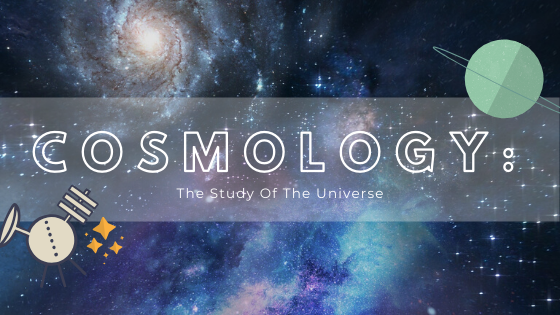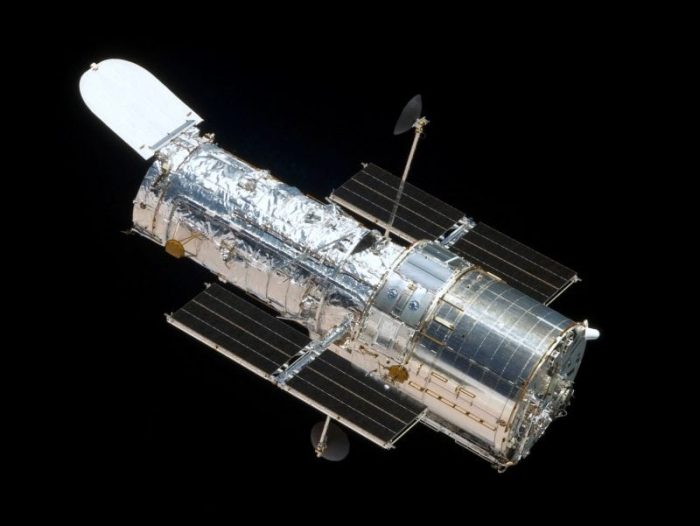
The study of the universe is called Cosmology, it is the physical investigation of the universe from the earliest forms during the Big Bang to today. It is a combination of physics and astrophysics directed at understanding the nature of the universe.
The universe is something that is still a mystery to us, even after studying it for so long. Cosmology, the study of the universe, has been around as far back as the 16th century BCE when humans believe the Earth was flat and surrounded by stars.
Nowadays we have an idea of the beginning of the universe, the stars that are in the universe, and even the multitude of anomalies the universe has in it. Check out this guide to learn all about cosmology.
“Cosmology does, I think, affect the way that we perceive humanity’s role in nature. One thing we’ve learnt from astronomy is that the future lying ahead is more prolonged than the past. Even our sun is less than halfway through its life.” — Sir Martin Reeves
The Study Of The Universe
Cosmology, as defined by Dictionary.com (found here) is:
the branch of philosophy dealing with the origin and general structureof the universe, with its parts, elements, and laws, and especiallywith such of its characteristics as space, time, causality, and freedom.
OR, the branch of astronomy that deals with the general structure andevolution of the universe.
Essentially, cosmology is the study of how the universe around us works. Cosmologists study the big bang theory, dark matter, and even dark energy. Cosmology is similar to astronomy in that space and the universe is studied, but they are two vastly different things. Astronomy tends to focus on the stars as celestial objects, meaning they focus more on the actual stars whereas cosmology studies the universe as a whole.
The term cosmology was first coined (in English) in 1656 by Thomas Blount in his book Glossographia, where he defines words like a dictionary. He defined cosmology as:
Cosmology (Gr.) a speak∣ing of the world
While that isn’t quite the definition we have for cosmology today, this is the first time we actually see the word in use. Even though that is the first time we have actually seen the word in use, cosmology has existed for quite some time. Let’s go over some of the history of cosmology.
The Study And History Of The Universe
Ancient civilizations looked at the stars and have wondered about the universe, just as we do to this day.
Cosmology can be seen as far back to the Hindu people in 1700 BC who believed that the universe was infinite and there were multiple universes that existed. In 280 BC the idea of the Earth rotating around the Sun that creates a year was proposed. Another thing that came with that theory was that the sun was stationary and planets rotated around it.
The basis for our idea of cosmology comes from Johannes Kepler, who in the late 1500s came up with the theory of multiple planets orbiting our sun in an elliptical orbit. He came up with this theory using observation, math, and physics. That concept is what modern cosmology is based on, so we can almost think of Keppler as the father of modern cosmology and astronomy (hence the super awesome telescope NASA has named after him).
“Across the sea of space, stars are other suns.” — Carl Sagan
It is truly fascinating to look at the different societies throughout history to see what their take on the universe was. After the birth of Christ ideas of the universe changed in different societies (for instance, the Genesis idea of creation was that Earth was surrounded by the “waters of chaos”). Other civilizations had multi-verse where there are multiple infinite universes, whereas other civilizations believed that the Earth and sun were at the center of a finite universe that revolved around us. While these theories may seem strange, it is fascinating that groups of people theorized about the universe around them and came up with ideas (some of them correct) without any modern technology we have today.
How Do We Study Our Universe?

The Hubble telescope. Image source: NASA
Nowadays we have incredible technology that helps us learn about space and the universe around us. Here are some of the most influential pieces of tech that have changed our way of understanding the universe:
NASA Cosmic Background Explorer (CoBE)
CoBE was launched in 1989 with the purpose of taking measurements of radiation at different points in the universe. This satellite was made for the sole purpose to study cosmology, which actually greatly aided in our knowledge about the start of the universe.
“Orbiting earth in the spaceship, I saw how beautiful our planet is. People, let us preserve and increase this beauty, not destroy it!” — Yuri Gagarin
CoBE was able to relay back information that actually helped prove the idea of the Big bang theory by measuring the cosmic background radiation. We now regard the Big bang theory as the prevailing idea of how the universe was formed, and it is thanks to this satellite (and the scientists who came up with the theory in the first place). The scientists that created CoBE actually won Nobel Prizes in physics for their work with CoBE and providing more data to help support the idea of the Big bang theory.
The Hubble Telescope
While this telescope was not created for the sole purpose of cosmology, like CoBE was, the Hubble has taught us a lot about the universe. The Hubble Telescope was launched in 1990 and takes pictures of distant stars and galaxies for us to the study and learn as much as we possibly can about what is out beyond Earth. The Hubble is still being used and is one of our most important spacecraft (in my opinion at least).
While we may recognize the Hubble telescope for giving us amazing pictures, it has provided us so much more than just photographs. Hubble has actually shown us pictures of new stars being created, has proven the universe is expanding, has even allowed us to witness meteor strikes on far-off planets, and has allowed us to find new galaxies incredibly far away.
Euclid Spacecraft
The Euclid spacecraft is the next cosmological telescope set to launch in 2021. Euclid will study dark energy and dark matter to be able to understand how quickly the universe is expanding by measuring distances between galaxies and different galaxies shapes. This will help us further understand dark energy, which is believed to be what is causing the universe to expand. We at Science Trends are greatly looking forward to seeing what Euclid discovers so we can try to further understand our universe.









